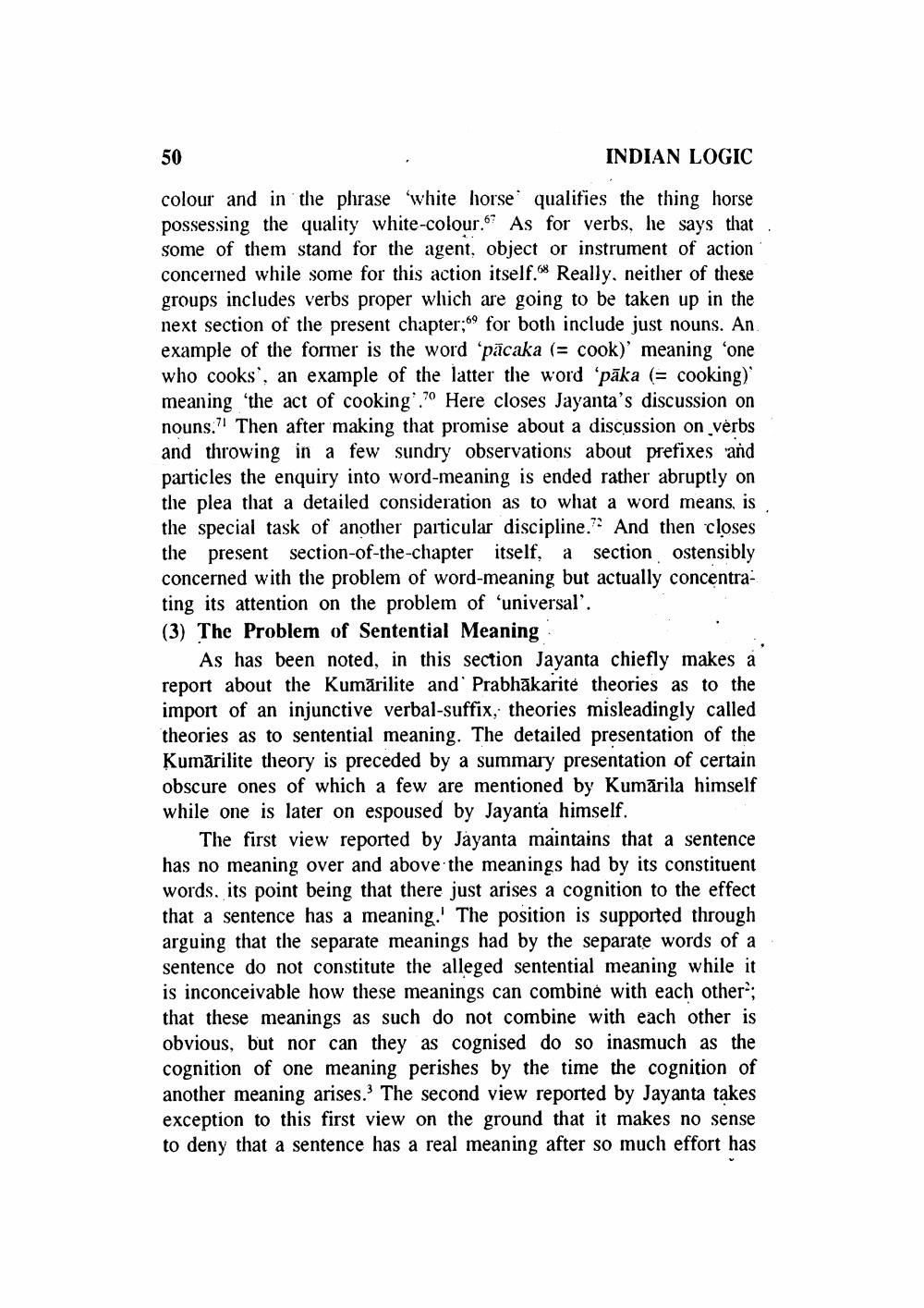________________
50
INDIAN LOGIC
colour and in the phrase 'white horse qualifies the thing horse possessing the quality white-colour.6? As for verbs, he says that some of them stand for the agent, object or instrument of action concerned while some for this action itself.6% Really, neither of these groups includes verbs proper which are going to be taken up in the next section of the present chapter;69 for both include just nouns. An example of the former is the word 'pācaka (= cook)' meaning 'one who cooks, an example of the latter the word 'pāka (= cooking)" meaning 'the act of cooking.70 Here closes Jayanta's discussion on nouns. Then after making that promise about a discussion on verbs and throwing in a few sundry observations about prefixes and particles the enquiry into word-meaning is ended rather abruptly on the plea that a detailed consideration as to what a word means, is the special task of another particular discipline. And then closes the present section-of-the-chapter itself, a section ostensibly concerned with the problem of word-meaning but actually concentrating its attention on the problem of 'universal'. (3) The Problem of Sentential Meaning
As has been noted, in this section Jayanta chiefly makes a report about the Kumārilite and Prabhākarité theories as to the import of an injunctive verbal-suffix, theories misleadingly called theories as to sentential meaning. The detailed presentation of the Kumārilite theory is preceded by a summary presentation of certain obscure ones of which a few are mentioned by Kumārila himself while one is later on espoused by Jayanta himself.
The first view reported by Jayanta maintains that a sentence has no meaning over and above the meanings had by its constituent words, its point being that there just arises a cognition to the effect that a sentence has a meaning. The position is supported through arguing that the separate meanings had by the separate words of a sentence do not constitute the alleged sentential meaning while it is inconceivable how these meanings can combine with each other; that these meanings as such do not combine with each other is obvious, but nor can they as cognised do so inasmuch as the cognition of one meaning perishes by the time the cognition of another meaning arises. The second view reported by Jayanta takes exception to this first view on the ground that it makes no sense to deny that a sentence has a real meaning after so much effort has




